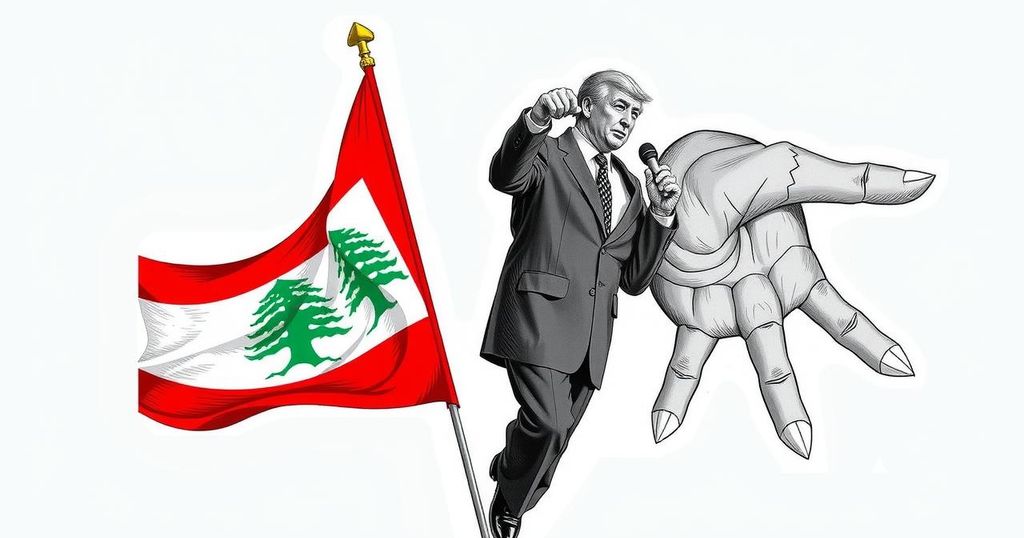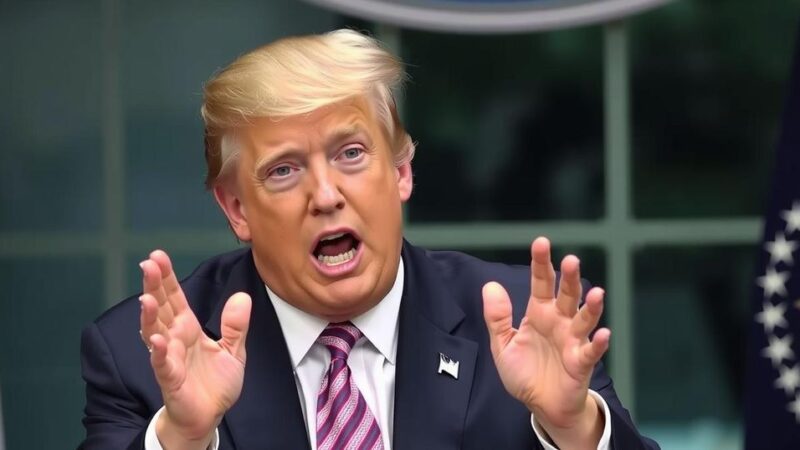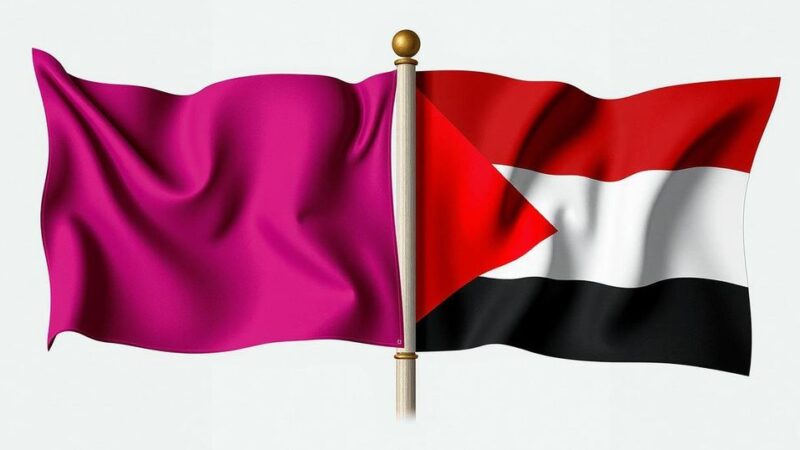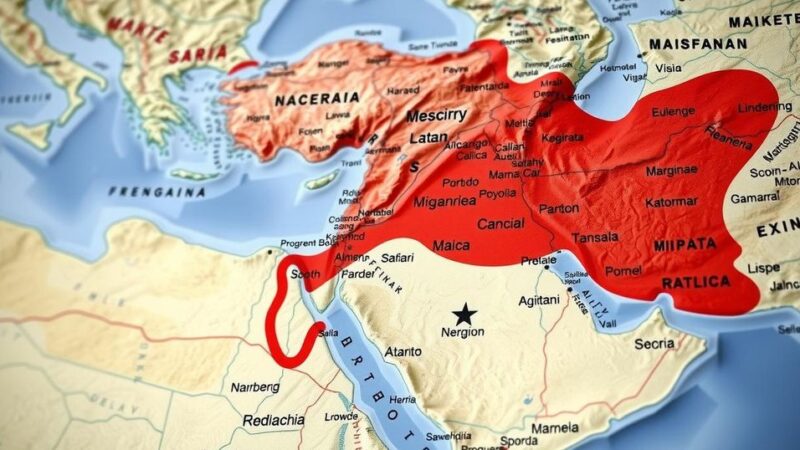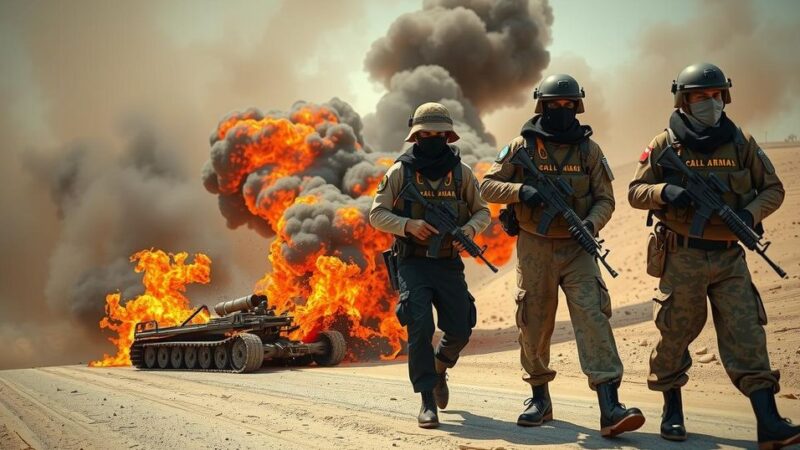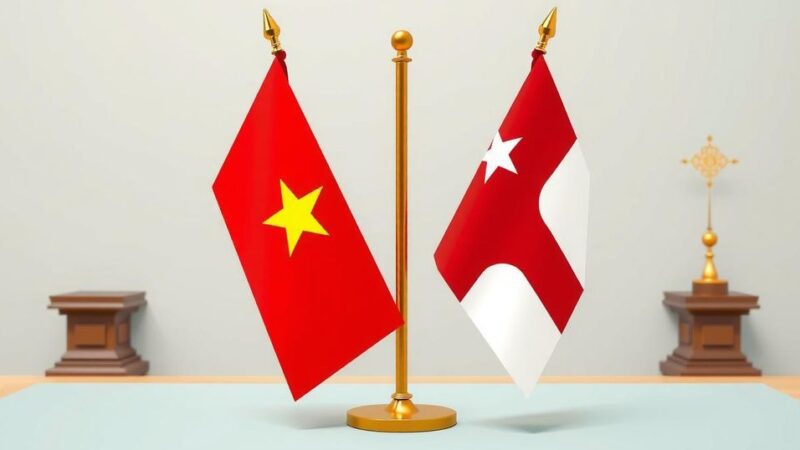Egypt’s Foreign Minister calls for a Lebanese consensus to resolve the presidential vacuum during talks with French envoy, stressing internal solutions without external interference. The Lebanese Parliament is set to meet on January 9, facing a two-year leadership void following Michel Aoun’s presidency. Various political factions indicate ongoing struggles and a need for unity in electing a unified candidate amid regional tensions.
On Tuesday, Egyptian Foreign Minister Badr Abdelatty underscored the necessity of achieving a Lebanese consensus to address the ongoing presidential vacuum in Lebanon, free from external pressures. This declaration occurred during a conversation with Jean-Yves Le Drian, the Special Envoy to Lebanon from the French President. The discussion focused on the situation in Lebanon regarding the impending parliamentary session for the presidential election.
Abdelatty reaffirmed the importance of establishing a true national consensus to eliminate the presidential void and pledged Egypt’s ongoing support to fortify Lebanese institutions during this critical juncture. He emphasized that the solutions should be intrinsically Lebanese, without impositions from external entities.
The Lebanese Parliament is set to convene on January 9 to choose a new president, a position vacant since former President Michel Aoun’s term ended in October 2022. Previous parliamentary sessions have not achieved consensus among the political factions, with 13 unsuccessful attempts over two years, the last of which transpired on June 14, 2023.
Speaker Nabih Berri has reiterated his call for the upcoming general session aimed at electing a president amidst a backdrop of multifaceted challenges that Lebanon faces, including a ceasefire agreement with Israel. Berri described the recent conflict with Israel as the most perilous phase in Lebanese history and urged all sects to expedite the election of a unifying figure.
President selection in Lebanon requires a vote from the 128-member Parliament, necessitating collaboration among competing political blocs due to the absence of a dominant majority. A quorum of 86 members is mandated for the voting process, where a candidate must acquire 65 votes in the first round or a simple majority in subsequent votes.
Following the ceasefire announcement, Naim Qassem, the Secretary-General of Hezbollah, expressed commitment to work alongside the government to facilitate the reconstruction and ensure the establishment of constitutional institutions, particularly the presidential election, emphasizing the January 9 parliamentary session will proceed as scheduled. Furthermore, former Progressive Socialist Party leader Walid Jumblatt confirmed Army Commander General Joseph Aoun as his bloc’s presidential candidate, indicating a unified stance; additionally, the Lebanese Forces party has called for a presidential election as a means for the state to regain its autonomy.
The article highlights Egypt’s diplomatic efforts to facilitate a resolution to the presidential vacuum in Lebanon, a situation that has persisted since October 2022. Tensions within the Lebanese political landscape have led to numerous unsuccessful parliamentary sessions to elect a new president. Amidst various pressing challenges, including an ongoing ceasefire with Israel, the call for independent Lebanese consensus serves as an essential framework in addressing the leadership vacuum while stressing the importance of local governance without foreign influence.
In conclusion, Egypt’s emphasis on a Lebanese-led solution to the presidential vacuum signals a pivotal moment for Lebanon as it seeks to overcome its political impasse. With parliamentary sessions scheduled to elect a new president, the importance of national consensus and the empowerment of Lebanese institutions cannot be overstated. Both local and regional dynamics will undoubtedly shape Lebanon’s path forward during this critical period.
Original Source: www.dailynewsegypt.com

